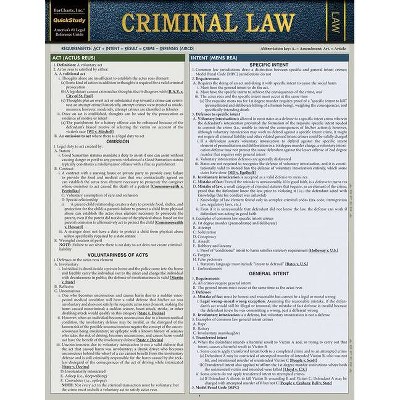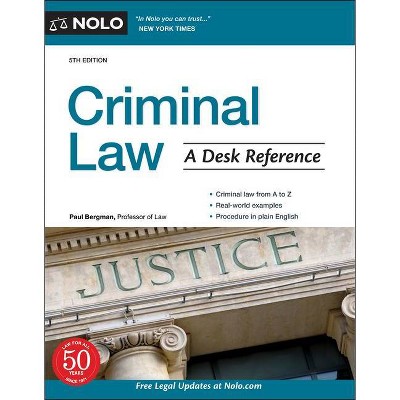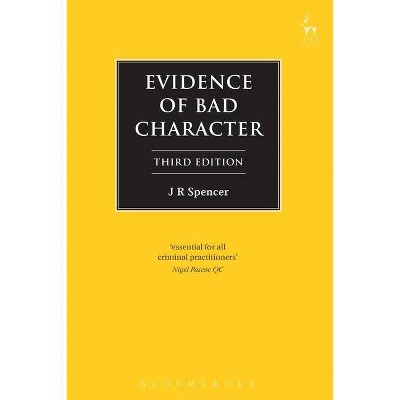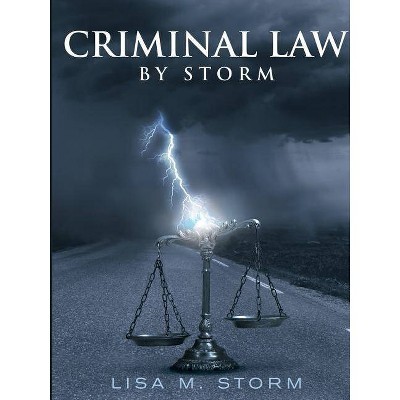Self-Defence in Criminal Law - (Criminal Law Library) by Boaz Sangero (Paperback)
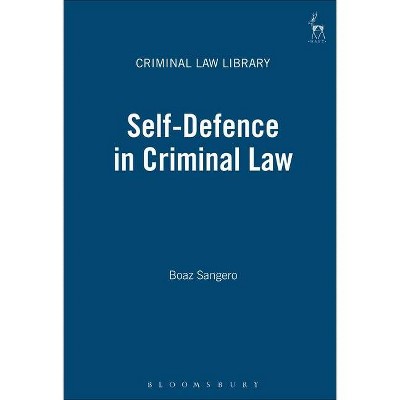
Similar Products
Products of same category from the store
AllProduct info
<p/><br></br><p><b> About the Book </b></p></br></br>This book argues that before defining each aspect of self-defence it is imperative to determine the proper rationale for self-defence.<p/><br></br><p><b> Book Synopsis </b></p></br></br>This book combines a careful philosophical discussion of the rationale justifying self-defence with a detailed discussion of the range of statutory self-defence requirements, as well as discussions of numerous other relevant issues (i.e. putative self-defense, excessive self-defense, earlier guilt and battered women). The book argues that before formulating definitions for each aspect of self-defence (necessity, proportionality, retreat, immediacy, mental element, etc.) it is imperative to determine the proper rationale for self-defence and, only then to derive the appropriate solutions. The first part contains an in-depth discussion of why society allows a justification for acts but does not excuse the actor from criminal liability, and the author critically analyzes current theories (culpability of the aggressor; autonomy of the attacked person; protection of the social-legal order; balancing interests; choice of the lesser evil) and points out the weaknesses of each theory before proposing a new theory to explain the justification of self-defence. The new theory is that for the full justification of self-defence, a balance of interests must be struck between the expected physical injury to the attacked person and the expected physical injury to the aggressor, as well as the relevant abstract factors: the autonomy of the attacked person, the culpability of the aggressor, and the social-legal order. The author demonstrates how ignoring one or more of these factors leads to erroneous results and how the proposed rationale can be applied to develop solutions to the complex questions raised.<p/><br></br><p><b> Review Quotes </b></p></br></br><br>...presents the reader with an easy-to-follow yet highly comprehensive dialogue concerning private defence. The book has a global reach through its consideration of different legal systems and challenges to the private defence based on a discussion on EU, Australian and American case law...an intriguing discussion, which offers readers a complete picture of private defence while also addressing current flaws in its utilisation and providing possible solutions to rectify the loopholes in private defence.<br/>The Police Journal, Volume 80 (2007)<br><br>Boaz Sangero's project and ambition - in which he largely succeeds - is to provide a doctrinally sound framework for the analysis and critique of self defence as it operates in a variety of legal systems. His methodology is a mixture of inductive and deductive strategies....Sangero has valuable thoughts to offer, and the analytical strength of his framework is powerfully demonstrated throughout...the reader who seeks answers to the more fundamental questions raised by Leverick [Killing in Self-Defence, OUP] at the start of her work had better turn to Sangero's book to find them. His analytical framework...offers a structure that enables meaningful engagement with the questions Leverick poses. Her own book does not.<br/>Cambridge Law Journal, 2009<br><br>The author offers many interesting observations and suggestions in dealing with a number of important issues...a careful and valuable analysis of the issue of private defence.<br/>Current Issues in Criminal Justice, Journal of the Institute of Criminology, Volume 19, Number 3, March 2008<br><p/><br></br><p><b> About the Author </b></p></br></br>Boaz Sangero is Head of the Department of Criminal Law and Criminology at the Academic College of Law, Ramat Gan, Israel, and a member of the Israeli Bar.
Price History
Price Archive shows prices from various stores, lets you see history and find the cheapest. There is no actual sale on the website. For all support, inquiry and suggestion messages communication@pricearchive.us


